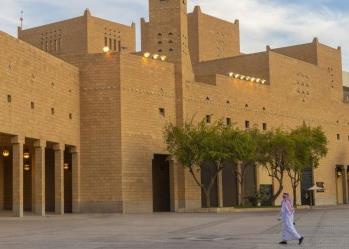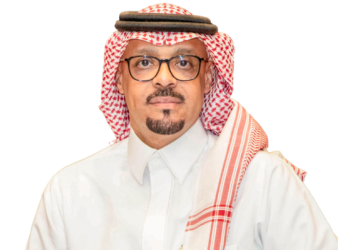
Interview: Nabil Habayeb, president and CEO of GE Middle East and North Africa

Nabil Habayeb, GE Middle East and North Africa
Nabil Habayeb, GE Middle East and North Africa
Nabil Habayeb, president and CEO of US-based GEs Middle East and North Africa division, has witnessed several seismic changes since he assumed the role more than a decade ago, from the GCC construction boom to the real estate market crash in 2009 and the onset of the regional unrest in 2011.
The dramatic decline in oil prices over the past 18 months is the latest challenge to beset governments and companies operating across the region, but Habayeb maintains there are plenty of reasons to be optimistic.
[The fall in oil prices] has had a big impact on oil and gas companies, and governments have had a relook at budgets and allocation of budgets, he says. However, if you look at the Middle East, a lot of things are going on here.
Infrastructure and social needs continue to be the top priority for governments; they need to respond to peoples needs and priorities, as we have seen what can happen in North Africa and other places during the [recent unrest].
While GEs oil and gas business has been affected by the fall in crude prices, Habayeb says that due to the diversified nature of the firms energy business, growth in that sector has remained flat while other areas are offering significant opportunities in the Middle East and North Africa.
The investment into making sure there is uninterrupted power supply, clean water, affordable quality service for healthcare and improved general infrastructure continues to be a [government] priority, he explains. And on top of that, efforts to diversify from an oil base into industrialisation and other sectors such as tourism are helping growth in the aviation and transportation sectors.
Economic diversification
Another rapidly changing dynamic in the regions energy sector is the diversification away from the traditional reliance on oil and gas for power generation, as governments seek to shore up energy security and gain maximum returns on their hydrocarbons reserves.
Renewable energy is now everybodys priority, says Habayeb, who has witnessed the change from close quarters.
I remember regularly meeting an energy minister in previous years, and the moment you brought up renewables the meeting would end in a nanosecond, muses the GE head. Now everyone is talking about renewables and the need to diversify their energy base. From solar power to wind in North Africa and now even Saudi Arabia, through to Turkey and Pakistan it is becoming a big focus.
GE has already tapped into the market, with the firm recently awarded a contract to install the first wind turbine in Saudi Arabia for state oil company Saudi Aramco at its Turaif bulk plant.
GE acquisition
GE is also well placed to benefit from the regions move to integrate coal power plants into their energy diversification programmes. In November 2015, the US firm completed the $10bn acquisition of the power component of Frances Alstom, which has a long established history in building coal-fired facilities. As a result of the takeover, GE was recently awarded the deal to build the 2,400MW Hassyan coal independent power project (IPP) in Dubai, the GCCs first coal power plant.
Acquiring Alstom has been a big boost for us in the region, says Habayeb. It has increased our portfolio, customer base and our total solutions offering has strengthened. We now have access to coal and offshore wind, and our position in the transmission and distribution market has also been improved significantly.
The Alstom acquisition has added $2.5bn in revenue to GEs top line and has increased its staff by about 2,500 people. Despite the purchase being one of the largest takeovers in the power sector in recent years, Habayeb says the firms new component has slotted in comfortably.
We have known the Alstom business before when we acquired the gas turbine business in the mid-1990s, so it is not completely new, he says. I think the cultural integration has been extremely smooth and the team is pretty impressive.
Providing finance
With governments being forced to cut budgets and prioritise schemes as a result of the lower oil prices, energy and technology providers are increasingly being asked to take on the capital expenditure burden. Habayeb says finding solutions to assist clients with capital financing is a vital part of winning work across the world.
Project financing is extremely important everywhere you go; people are tight on cash, if you come in with financing it is important for everybody, he says. Governments want the private sector to be involved. If you look at Saudi Arabia and its Vision 2030 growing the private sector will play a big role. We will see a lot more of that going forward, not just in power, but across all government services.
Habayeb says developing local manufacturing facilities and forming relationships with foreign export credit agencies (ECAs) are important to GEs strategy to be competitive in the current economic climate. We have a great commercial finance team that has been able to tap into ECAs around the world and finance projects in the region, he says.
We have installed manufacturing bases around the world, and in many of those countries we been given a big advantage by having access to their ECA to fund schemes. We get financing through Hermes in Germany, through ECAs in Italy, Canada, UK, Poland and China.
Localisation strategy
In addition to installing local manufacturing bases, Habayeb says investing in local people has become a vital part of being successful across the globe, with the Middle East being no exception.
In the past, in this part of the world, governments used to come to companies like GE and say come and build for us, he says. And then it [became] come and partner to do certain projects, and now they are saying come and help us address the problems we have. Infrastructure is one of the problems, but they also have the problems of youth unemployment and developing skillsets.
Now when we go and build a power plant, it is no longer a case of bring in the equipment and expatriate workers from all around the world to build it. We need to think about how we can manufacture the turbine in the country, like we are doing in Algeria and Saudi Arabia, service it in the country, and how to develop the skillsets that will be able to help you operate efficiently.
Habayeb is particularly proud of a joint initiative with Aramco that will employ up to 3,000 Saudi women in the kingdom. The idea came from a dinner chat that our leaders had with Aramco, says the GE head. The government needs to create jobs for all the youth and women that are graduating, so we said why dont we do this together?
Industrial internet
A final significant change that is shaping GEs strategy moving forward is the push to develop its information technology (IT) solutions.
The visit of GEs global CEO, Jeff Immelt, to Dubai in 2015 to showcase the firms rapidly growing industrial internet offerings signified the increasing value GE is placing on developing its software and IT products and services. GE has now entered the top 10 list of software companies in the world, and expects its industrial internet offerings to account for $20bn of revenues by 2020, from $2bn today.
Habayeb says GEs drive to become a global leader in industrial internet services is now a core part of its strategy. [Industrial internet] is very important. It changes the way companies are operating, he says. When you can do analytics and data evaluation of your equipment, you can optimise your assets and improve efficiencies.
According to Habayeb, the benefits for clients across the region can be substantial. We are talking to a government ministry in the region, and we told them a 3 per cent increase in efficiency of industrial software can save that country $700m over the next four years, just from doing that.
You might also like...

Rainmaking in the world economy
19 April 2024

Oman receives Madha industrial city tender prices
19 April 2024

Neom seeks to raise funds in $1.3bn sukuk sale
19 April 2024

Saudi firm advances Neutral Zone real estate plans
19 April 2024
A MEED Subscription...
Subscribe or upgrade your current MEED.com package to support your strategic planning with the MENA region’s best source of business information. Proceed to our online shop below to find out more about the features in each package.








